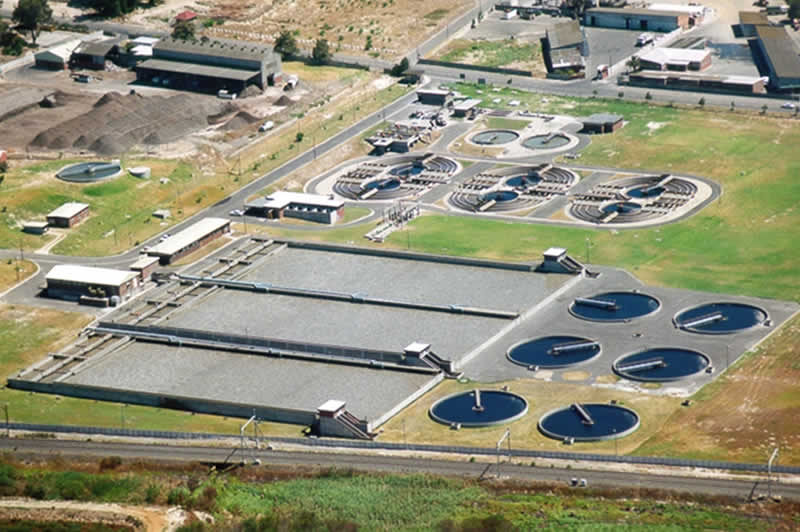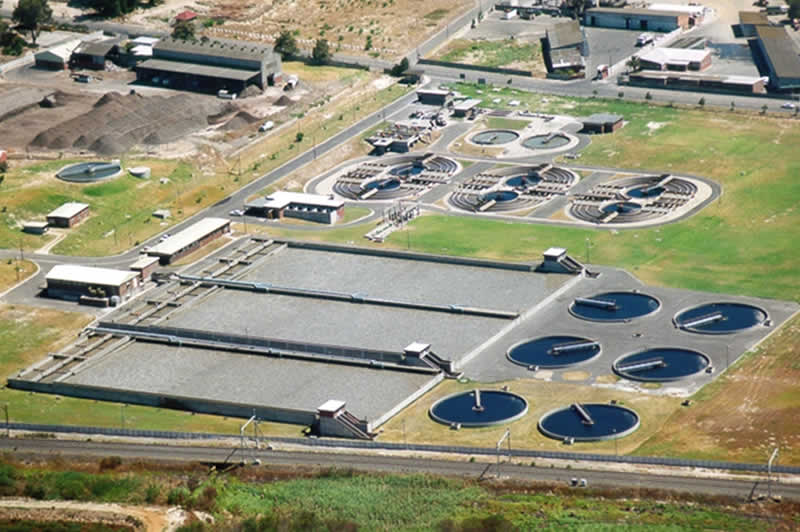Omicron variant detected in wastewater samples collected in the City of Cape Town and Nelson Mandela Bay
 Cape Town | Scientists from the South African Medical Research Council (SAMRC) have detected the Omicron (B.1.1.529) variant of SARS-CoV-2 in the majority of wastewater treatment plants tested in the City of Cape Town, as well as from a sample collected at the Cape Town International Airport.
Cape Town | Scientists from the South African Medical Research Council (SAMRC) have detected the Omicron (B.1.1.529) variant of SARS-CoV-2 in the majority of wastewater treatment plants tested in the City of Cape Town, as well as from a sample collected at the Cape Town International Airport.
Dr Mongezi Mdhluli, leader of the SAMRC Wastewater Surveillance & Research Programme (SAMRC-WSARP), confirmed that this is the first report of the Omicron variant being detected in the City of Cape Town’s wastewater system.
Under the umbrella of SAMRC-WSARP, established in July 2020 to understand the evolution of COVID-19, and to contribute to its management, in South Africa, scientists have been monitoring the concentration of fragments of the SARS-CoV-2 virus RNA in wastewater in four South African provinces. “Individuals with COVID-19 are known to shed the viral remains in their faeces. Although these fragments are not infectious, they can be detected in wastewater treatment plants and quantified to give an indication of likely COVID-19 cases locally. They can also be used to screen for circulating variants using PCR methods, as well as next-generation sequencing (NGS),” said Prof Craig Kinnear, Director of the SAMRC Genomics Centre.
“We found the Omicron variant in 11 of 12 (92%) samples of wastewater collected from Cape Town treatment plants on 30 November 2021. The Delta variant remained dominant in only one wastewater treatment plant tested,” said Prof Rabia Johnson, Deputy Director of the SAMRC’s Biomedical Research & Innovation Platform.
“We have also detected Omicron in a series of wastewater samples collected from the Cape Town International Airport (CTIA); our data at this stage show that Omicron was first detected at CTIA on the 23rd of November 2021” she added. The detection of the Omicron variant in wastewater in Cape Town coincides with an increase in cases of COVID-19 in the city.
The extent to which the Omicron variant has spread to rural areas outside the City of Cape Town is not known; however, genetic sequencing undertaken on a sample of wastewater collected from the rural town of Rawsonville in the Breede Valley (Western Cape) indicated the absence of Omicron, with the Delta variant remaining dominant. This does not necessarily reflect that omicron is not being transmitted in these areas.
Dr Mdhluli described how the current widespread prevalence of Omicron in wastewater in Cape Town differs dramatically from what the SAMRC-WSARP team observed during September 2021, in the midst of the third COVID-19 wave of infections. At that time only the Delta variant was detected in all Cape Town wastewater treatment plants tested.
In partnership with Nelson Mandela University, the SAMRC-WSARP team also conducted tests of wastewater in the Nelson Mandela Bay area, with preliminary results showing that three out of four wastewater treatment plants in that city are positive for Omicron.
Wastewater plays a crucial role in surveillance of SARS-CoV-2 as it can rapidly identify hotspots, as well as circulating variants, in turn allowing for a rapid public health response. SAMRC-WSARP results generated this week show that concentrations of SARS-CoV-2 fragments are now increasing in virtually all of Cape Town’s wastewater treatment plants, as well as in other parts of the country.
In light of the SAMRC-WSARP team indicating rising concentrations of SARS-CoV-2 RNA in wastewater treatment plants across the country, as well as evidence of the increasing dominance of the Omicron variant in South Africa, SAMRC President and CEO, Professor Glenda Gray, said that more than ever, it is crucial that everyone gets vaccinated, and also adhere to non-pharmaceutical interventions (wearing of masks, stringent hand hygiene, keeping to a distance of at least 1.5 metres from others and avoiding crowds. “Essential gatherings should preferably be held outdoors, or in very well-ventilated indoor spaces), as this is one of the ways to curb the transmission of COVID-19 during the coming festive season. We therefore advocate for fellow South Africans to vaccinate before vacation.”
NOTE TO THE EDITOR:
Further information on the SAMRC Wastewater Surveillance Programme may be obtained on their Dashboard at www.samrc.ac.za/wbe.
Contact Details
Tendani Tsedu
Head of Corporate & Marketing Communication
Email: tendani.tsedu@mrc.ac.za

